religion
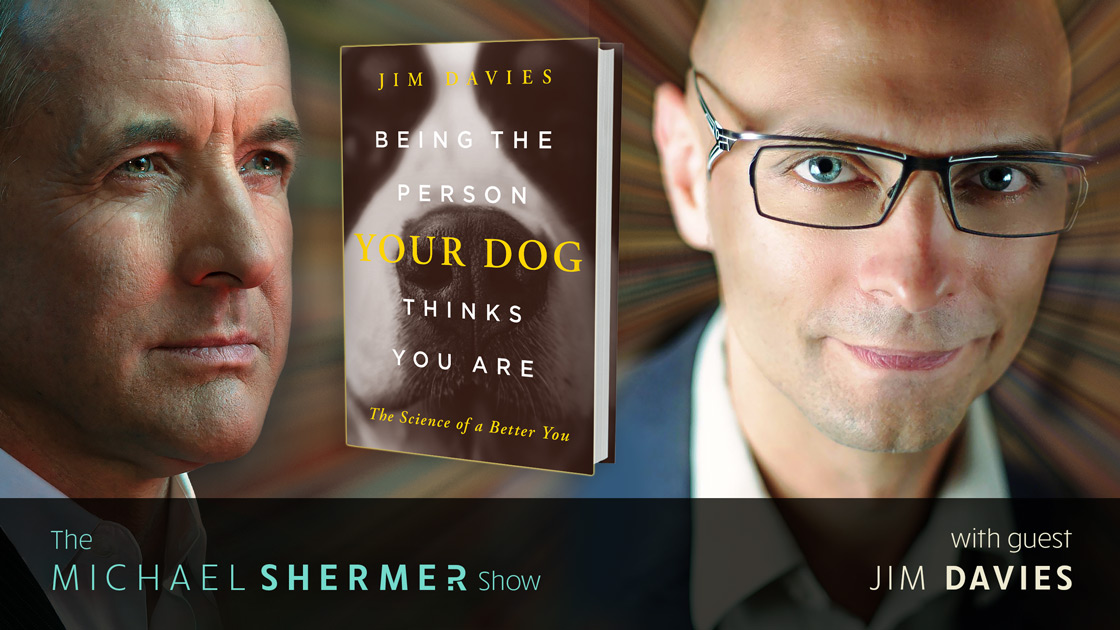
Shermer and Davies discuss: • an operational definition of the “good life” or “happiness” or “well being” • utilitarianism vs. deontology vs. virtue ethics • effective altruism • marriage and children • objective moral values • Do we have a moral obligation to help those who cannot help themselves? • Does America have a moral obligation to help oppressed peoples in dictatorships? • immigration • abortion • the welfare state • prostitution • reparations.
America is being torn apart. Amid growing strife, many people are experiencing angst concerning the future of this country, a country once renowned for its exuberant spirit of discovery, progress, liberty. From across the increasingly tribal political landscape, one can observe attacks on the ideas that fueled America’s spectacular rise: reason, individualism, and political freedom. From the illiberal left the “woke” phenomenon has emerged, rising to dominance in cultural institutions and calling for “canceling” those institutions, symbols, and even thoughts…
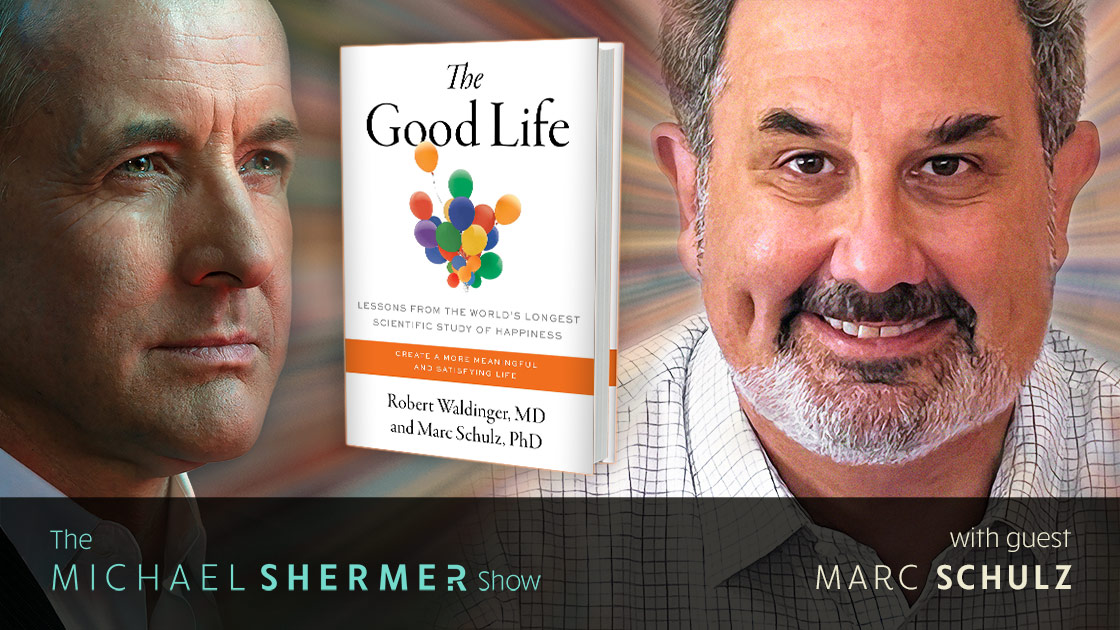
Shermer and Schulz discuss: an operational definition of the “good life” or “happiness” or “well being” • the reliability (or unreliability) of self-report data in social science • relative roles of genes, environment, hard work, and luck in how lives turn out • personality and to what extent it can be scientifically measured and studied • factors in early childhood that shape mental health in mid and late life • generational differences: • the impact of loneliness • misconceptions about happiness…
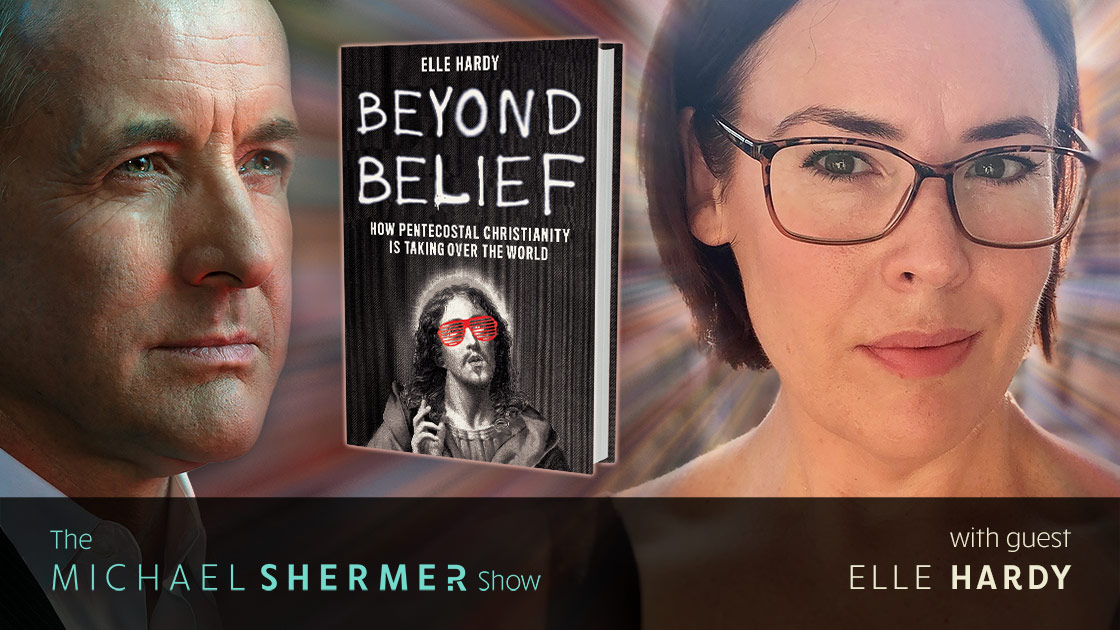
Shermer and Hardy discuss: Hardy’s religious journey (raised Catholic, now agnostic) • origin of Pentecostalism and its biblical basis Pentecostalism in Korea North and South, and Israel • the structure of the Pentecostal church and how it differs from other churches • Seven Mountain Mandate • how religions grow • pentecostalism and politics • the psychology of the believer • dispensationalism and the Rapture • prophecy • glossolalia • snake handling • eschatology and end-times theology • sin and redemption • prostitution • Jordan Peterson and…
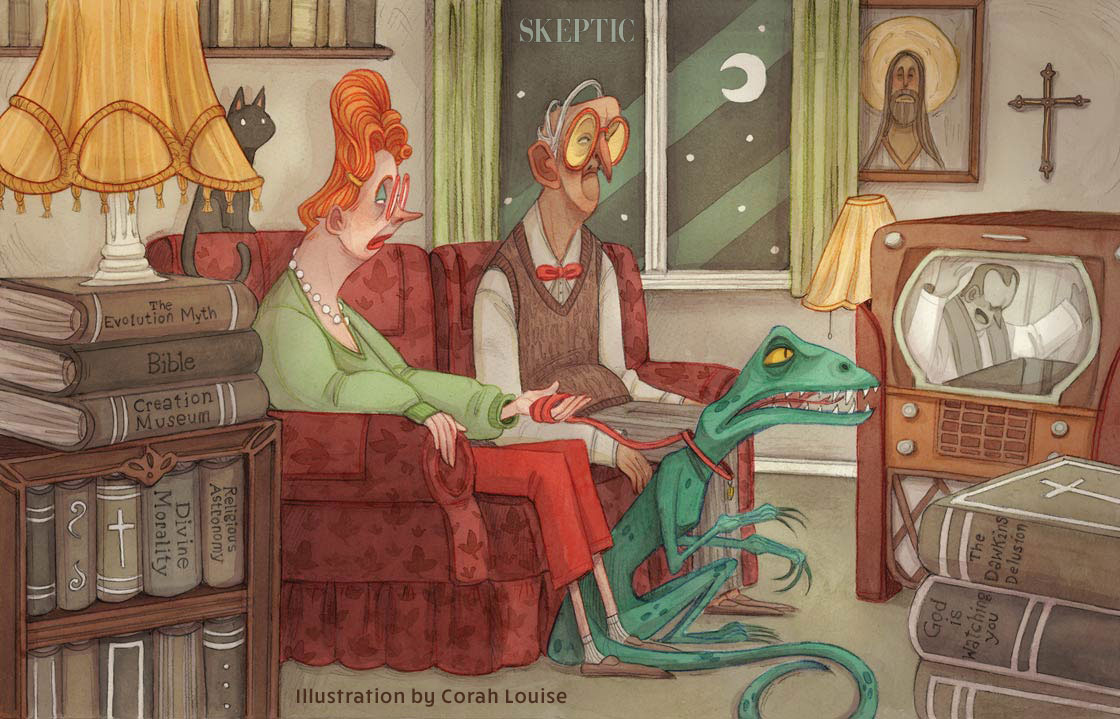
Science and religion present two paradoxes in the United States. On the one hand, the U.S. is the undisputed world leader in science. Yet, the U.S. is also the wealthy industrialized country with the most widespread skepticism about science, most notably regarding climate change, vaccines, and evolution. How can those two seemingly incompatible facts be reconciled? This article solves this paradox.
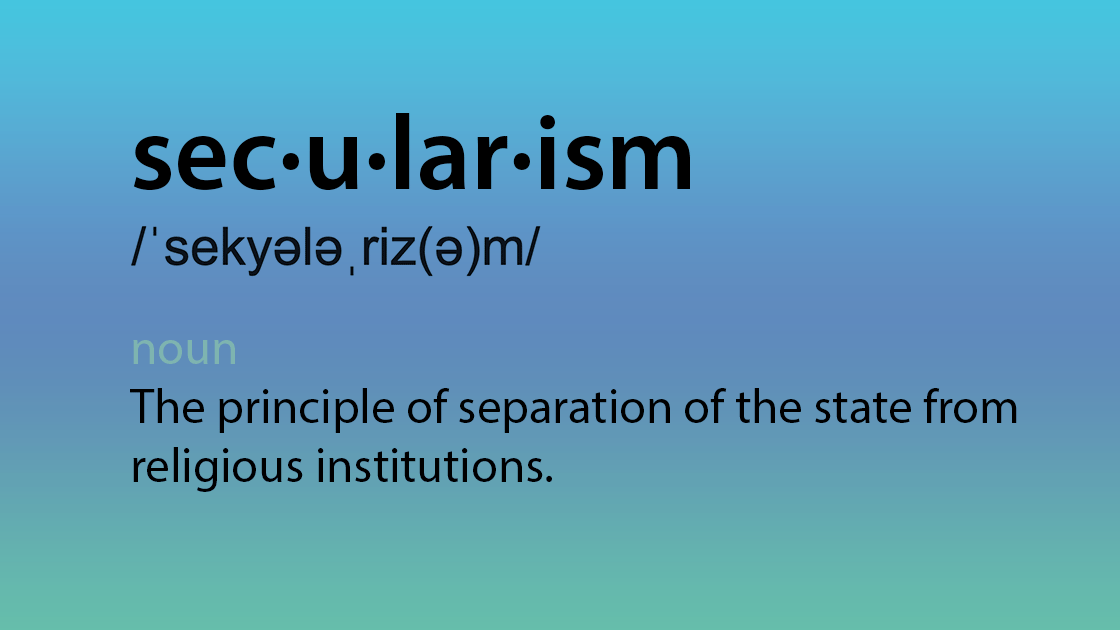
That the world in general and the United States in particular are becoming ever more secularized is no longer in dispute. The data are clear. The rise of the nones (no religious affiliation) is real. The hard question to answer is why. In this deep analysis of the many causal factors at work readers will learn about the long term trends that are likely to continue.

Ever since the Enlightenment philosopher David Hume outlined the “Is-Ought” problem—that we cannot derive an ought from an is, or we cannot determine the way something ought to be morally based on the way things are in nature (the classic example being slavery—because ants practice slavery that doesn’t make it natural and therefore acceptable for humans to practice slavery)—people have struggled to figure out on what basis should moral values be grounded. Of course, theists argue that God is that…
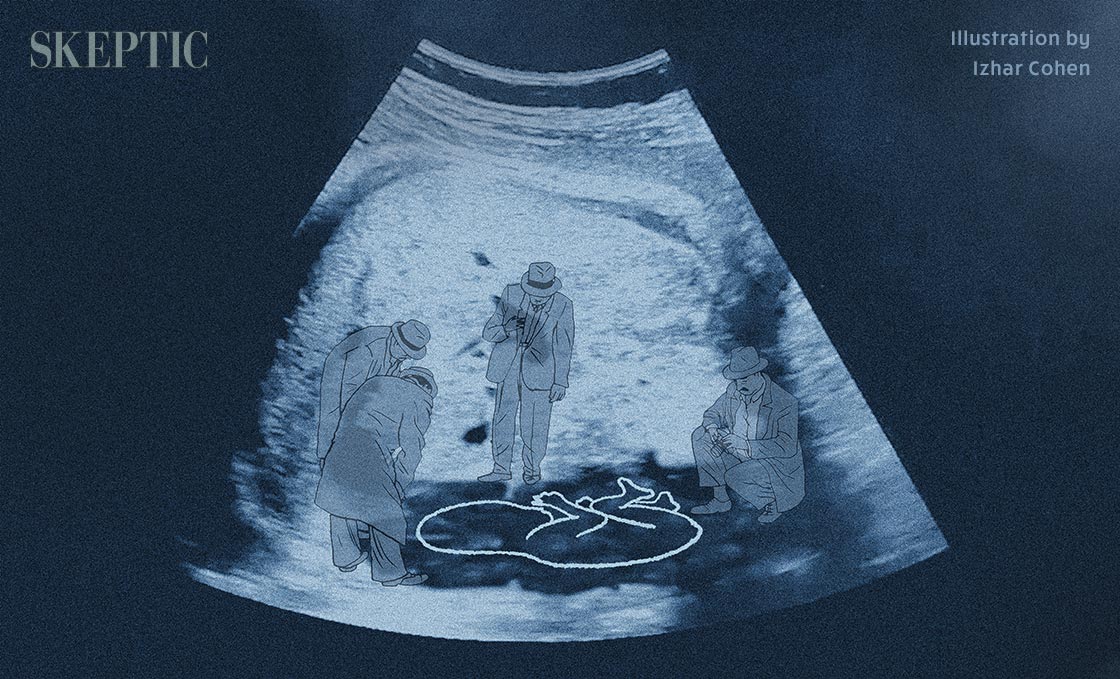
Abortion is one of the most relevant issues of our time. As with many other subjects capable of arousing strong emotion, people tend to assume that the U.S. public is evenly divided, in this case between the “pro-choice” and “pro-life” positions. And some frequently cited polling would lead you to believe that it is indeed […]

Holy relics like the Ark of the Covenant, Moses’s Ten Commandment stone tablets, the Holy Grail, the chalice from which Jesus drank at the Last Supper, The Spear of Destiny, and the like, are the stuff of myth, legend, Hollywood movies, and even Nazi villains, but what is the real story behind the myths? In this insightful analysis Skeptic magazine religion editor Tim Callahan reveals what we know and don’t know about these legendary icons.
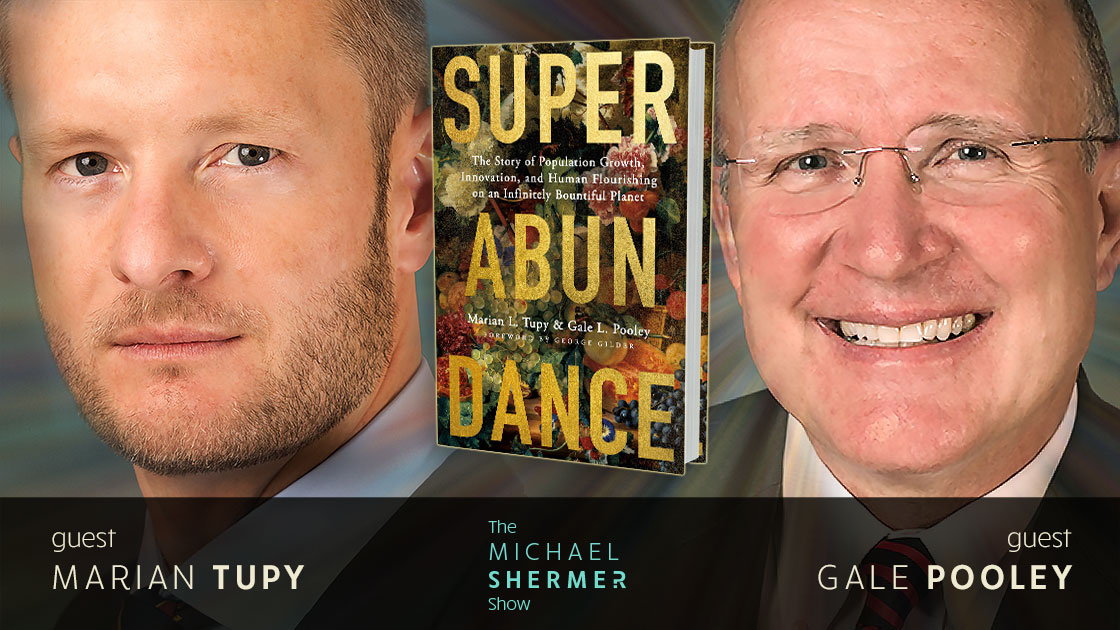
Shermer, Tupy, and Pooley discuss: why we long for the “good ol’ days” • the Malthusian trap • Ehrlich’s predictions on overpopulation • the birth dearth • the Simon Abundance Index • compound interest • What does it mean for the economy to grow 2–3% a year? • accumulating wealth • what poorer countries need to do to become richer countries • running out of fossil fuels • Obama’s “you didn’t build that” speech • inflation • electric vehicles •…
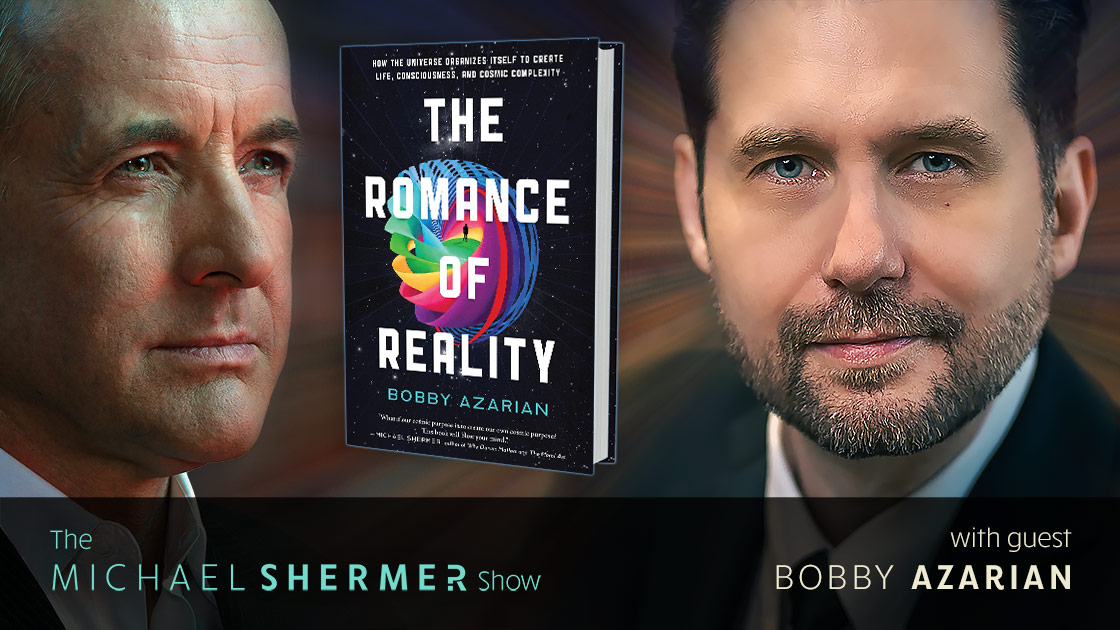
Shermer and Azarian discuss: laws of thermodynamics and directionality • how complexity formed after the Big Bang • laws of nature: discovered or created or both? • Stephen Jay Gould and contingency vs. necessitating laws of nature • convergent evolution and directionality in evolution • the left wall of simplicity • leading theories for the origin of life • complexity theory and emergence • consciousness, the self, and other minds • free will, determinism, compatibilism, panpsychism • Is there purpose…
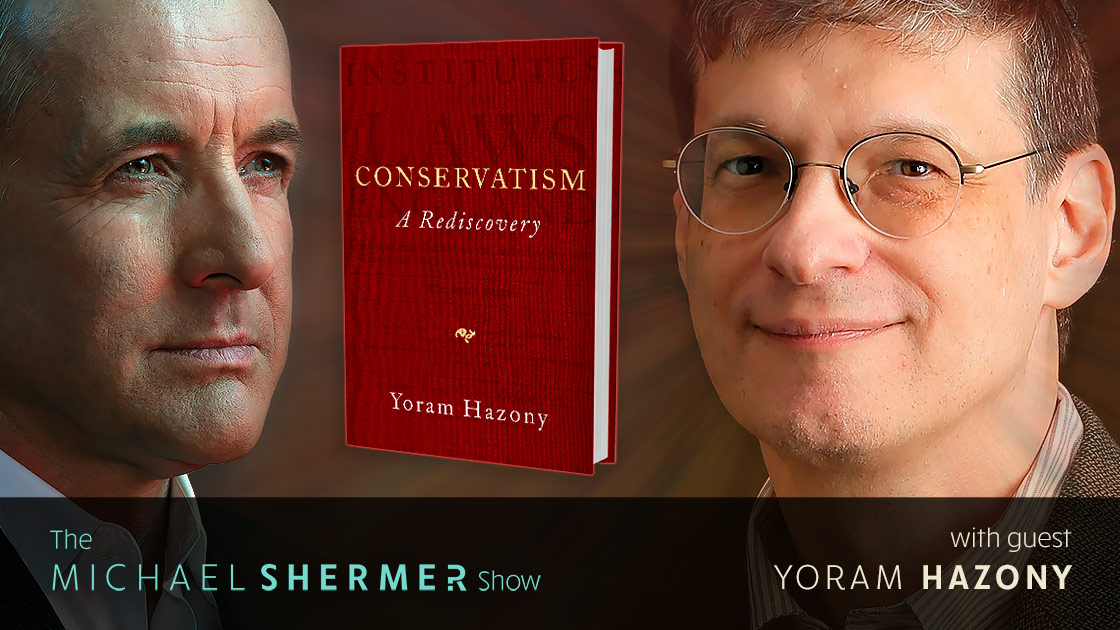
Political theorist Yoram Hazony argues that the best hope for Western democracy is a return to the empiricist, religious, and nationalist traditions of America and Britain. Shermer makes the case for Enlightenment liberalism, with its focus on science and reason, as the primary driver of moral progress over the centuries.
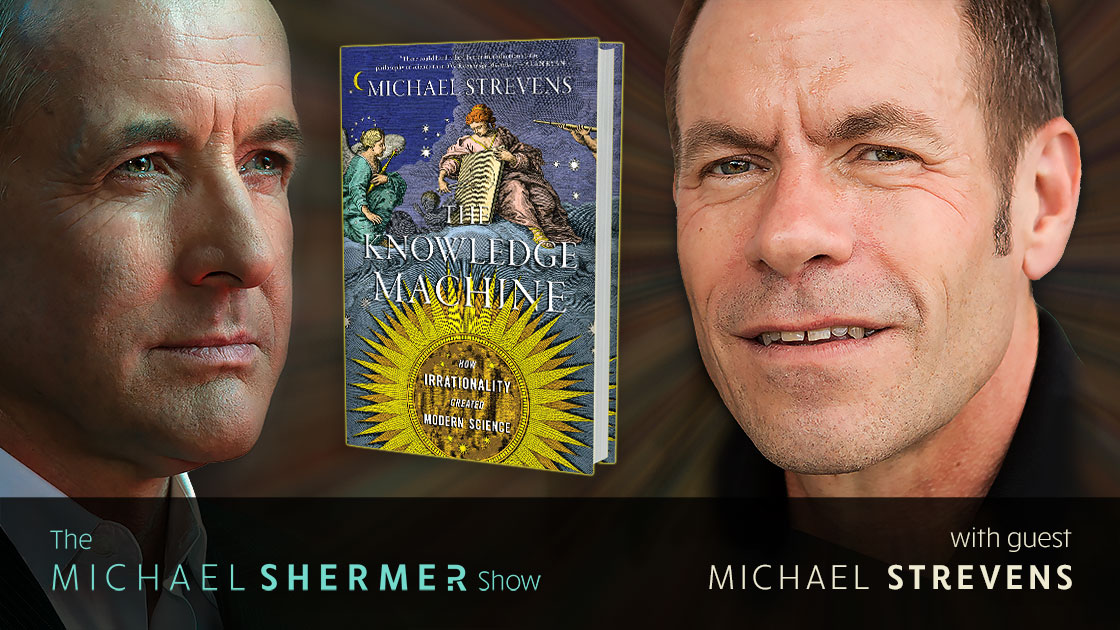
Shermer and Strevens discuss: irrationality and how it drives science • the knowledge machine • the replication crisis, what caused it, and what to do about it • verification vs. falsification • the iron rule of explanation • Bayesian reasoning vs. falsification • climate/evolution skeptics • model dependent realism • humanism • theistic arguments for: God, origin of life, morality, consciousness • known knowns, known unknowns, and unknown unknowns • how to evaluate media sources of science.
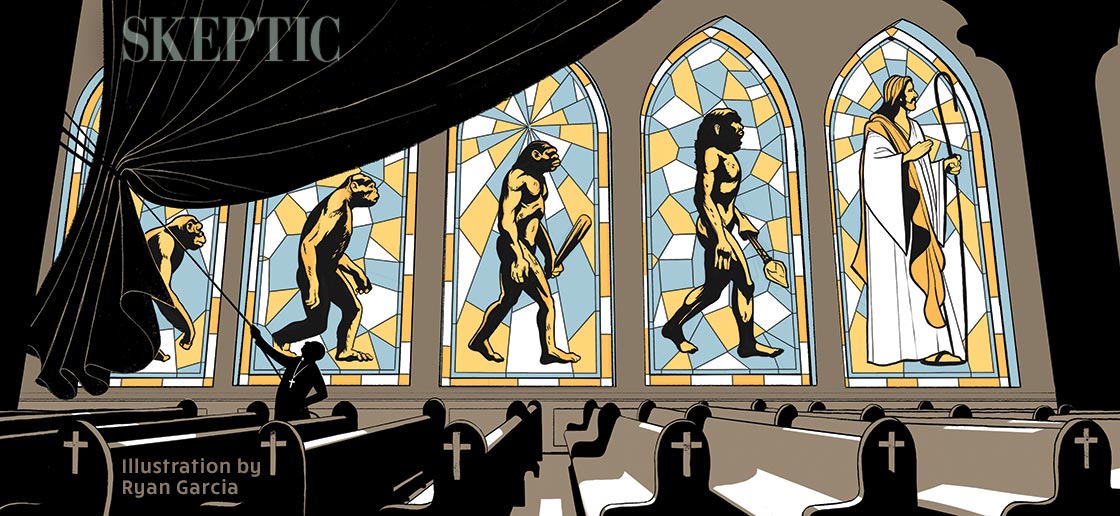
If you give Christians a choice between Jesus and Darwin by telling them that the theory of evolution means you have to be an atheist, they’re going to pick Jesus every time. In this article, Larry Arnhart argues that Christians should accept the theory of evolution not only because it’s true but also that it does not mean they have to give up their religion.
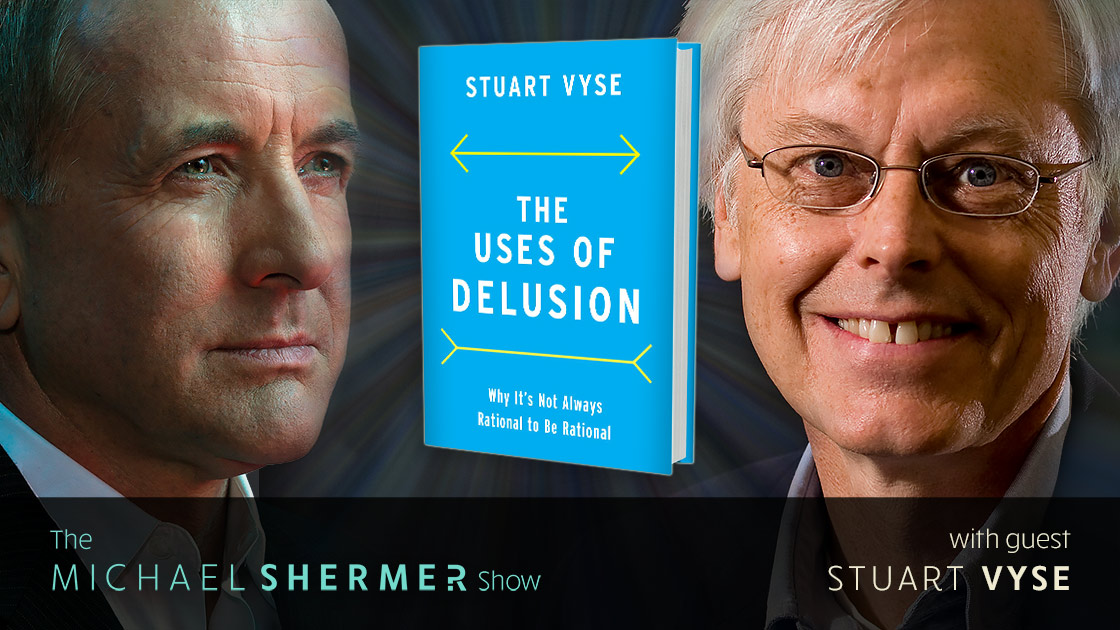
Michael Shermer speaks with psychologist and behavioral scientist, Stuart Vyse, about aspects of human nature that are not altogether rational but, nonetheless, help us achieve our social and personal goals. In his book, and in this conversation, Vyse presents an accessible exploration of the psychological concepts behind useful delusions, fleshing out how delusional thinking may play a role in love and relationships, illness and loss, and personality and behavior.
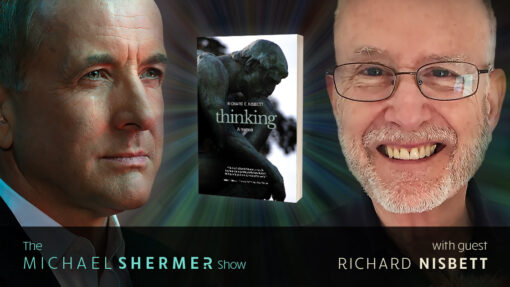
In a wide-ranging conversation Shermer and Richard Nisbett discuss Nisbett’s research showing how people reason, how people should reason, why errors in reasoning occur, and how much you can improve reasoning.
Michael Shermer is now writing on Substack with a new, weekly column called Skeptic: Examining the World Through a Scientific Lens. PLUS in a wide-ranging conversation Shermer and Richard Nisbett discuss Nisbett’s research showing how people reason, how people should reason, why errors in reasoning occur, and how much you can improve reasoning.
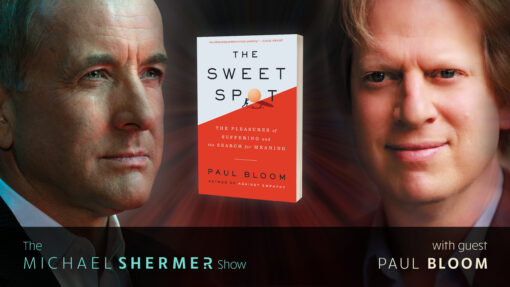
Why do we so often seek out physical pain and emotional turmoil? In episode 223, Michael Shermer speaks with professor of psychology Paul Bloom about the pleasures of suffering and the meaning of life, based on his book The Sweet Spot: The Pleasures of Suffering and the Search for Meaning.
Why do we so often seek out physical pain and emotional turmoil? In episode 223, Michael Shermer speaks with professor of psychology Paul Bloom about the pleasures of suffering and the meaning of life, based on his book The Sweet Spot: The Pleasures of Suffering and the Search for Meaning.
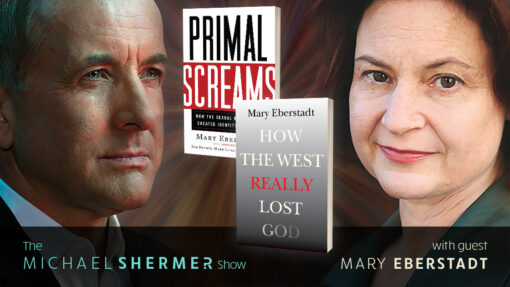
In episode 215, Michael Shermer speaks with Mary Eberstadt about the decline of religion in which Eberstadt presents her alternative theory for the “secularization thesis” (that the undermining of the family has undermined Christianity itself). In the second half, they discuss the rise of identity politics and how identitarians track and expose the ideologically impure, as people face the consequences of their rancor.
← PREVIOUS
NEXT →

























